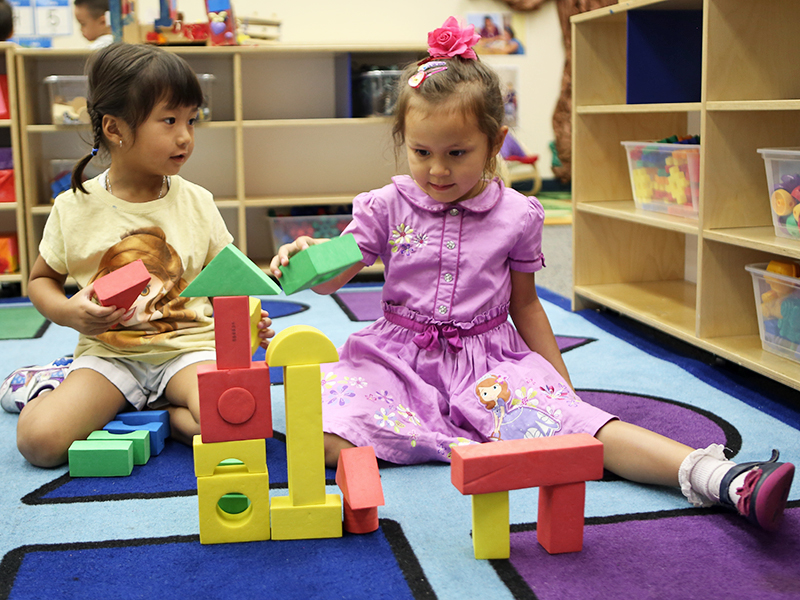California is doing too little to prepare workers for early education jobs and not paying them enough at a time when more children are heading to pre-kindergarten programs, a new report says.
New America, a Washington, D.C.-based foundation that explores public policy issues, released a report, “Not Golden Yet: Building a Stronger Workforce for Young Children in California,” that examined whether California is ready for the demands of the growing and diverse population in early education. The report, released last week, found that preschool teachers receive less training and are paid less than K-12 teachers.
“Our bottom line is that California is not doing enough to educate early childhood educators so that kids don’t fall way behind in school,” said Sarah Jackson, the report’s author.
Of the 1.5 million infants and toddlers in the state, 53 percent were Latino and 48 percent were low-income, according to the 2013 Census. About half of preschoolers speak a language other than English.
In the latest budget, the state added 9,500 more slots for the California State Preschool Program and an additional 6,800 vouchers for low-income parents to obtain childcare.
Also, in 2011, public schools added an extra year of schooling – transitional kindergarten – for some 4-year-olds. California previously required children to be 5 by Sept. 1 to enter kindergarten. Now children who turn 5 between Sept. 2 and Dec. 2 can attend transitional kindergarten a year before regular kindergarten.
Even more spaces could be created in future years: Gov. Jerry Brown must decide by Oct. 11 whether to sign a bill (AB 47) that would set a deadline to provide state preschool or transitional kindergarten spaces for all low-income 4-year-olds by June 30, 2018.
Yet California has little consistent training and preparation programs for early educators, the report states.
California offers no specific teacher credential for early education. The state’s 103 community colleges offer different degrees and certificates to thousands of early educators each year, but none of the programs are accredited by the National Association for the Education of Young Children, seen as a key benchmark of quality.
Educators also face disparity in pay, the report states. The average preschool teacher’s pay was $30,500, while a kindergarten teacher made an average of $56,660 in 2010. Childcare workers’ wages were lower, $23,730 – low enough to be eligible for food stamps and other benefits.
“We can’t attract and keep people in the field, especially teaching younger children,” Jackson said. “They are going to defect and teach older kids in public schools.”
The report recommends that California move to a seamless system from birth to 3rd grade, instead of separating programs for birth to age 5 and kindergarten through 3rd grade, to create consistency in education. As part of that, the state’s preschool program could merge with transitional kindergarten, as long as a specific credential is available for those teachers, the report says.
Also, the report recommends that the state do more to fund early education so the pay for preschool educators is on par with public school teachers.
To get more reports like this one, click here to sign up for EdSource’s no-cost daily email on latest developments in education.
